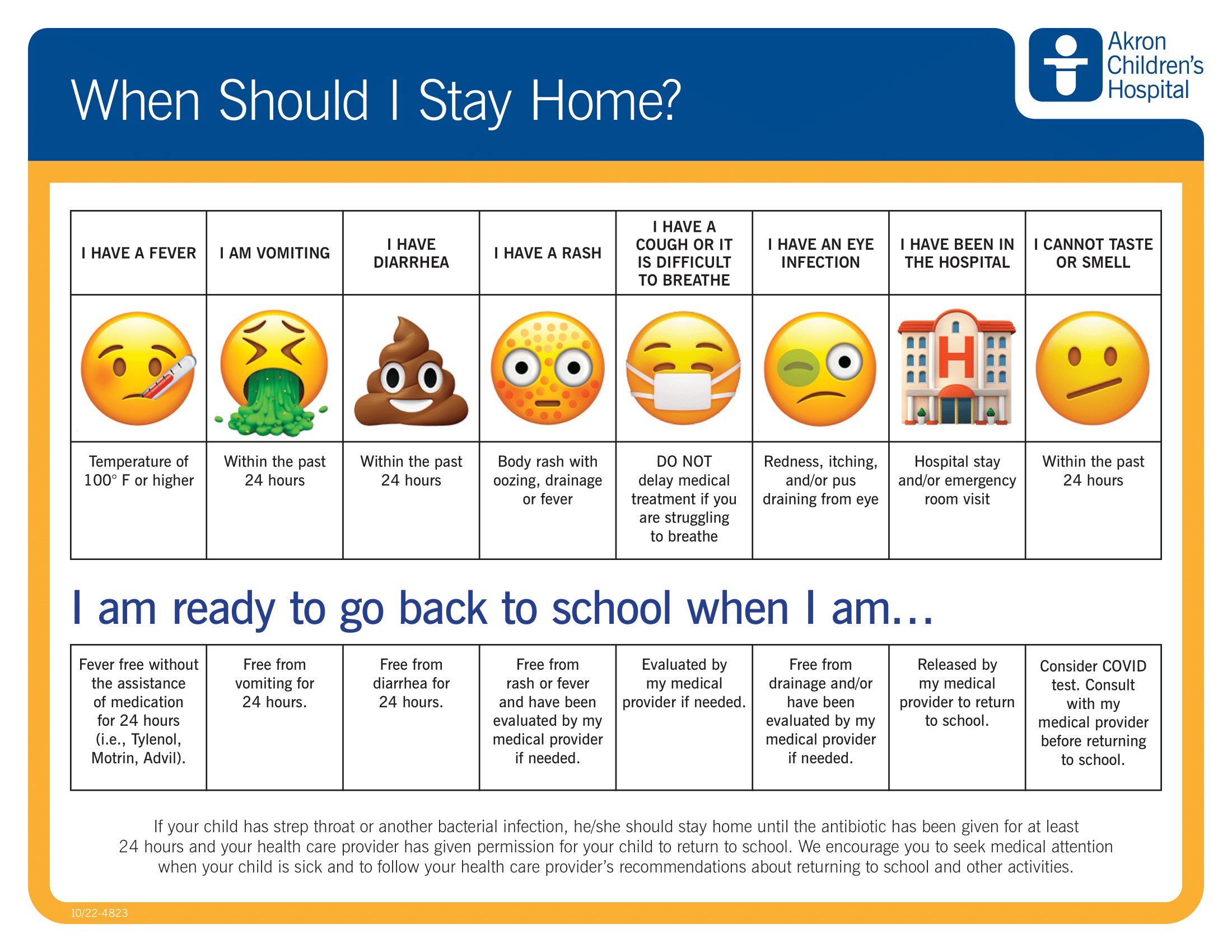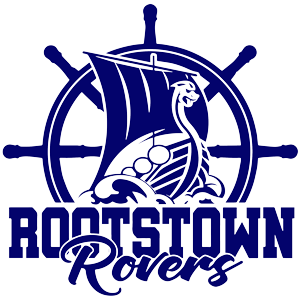Akron Children’s Hospital School Health Services Mission:
Akron Children’s Hospital School Health Services is dedicated to supporting the
academic success of children and youth through health promotion, education and child
advocacy. School Health Services nursing staff are an extension of Akron Children’s
Hospital in the school community. We promote and advocate for student health and
wellness in school. We help manage patient populations and individual student health
needs in the school setting.
Meet The Akron Children’s Hospital School Health Services Rootstown Team:
Health Guidelines for School Attendance:
Do not send your child to school if any of the following symptoms or conditions were
present in the last 24 hours. You may be asked to take your child home if your child:
- Has a fever of 100 degrees or higher. Student may return to school when the
temperature returns to normal (98.6) for 24 hours without the help of medication. - Has been vomiting and/or diarrhea. If your child has two or more episodes
during the previous evening or night, they may not attend school. Call your child’s
healthcare provider if symptoms continue for more than 48 hours, your child has
a fever or his/her condition worsens. Diapered children can return to school after
diarrhea when stool is contained in the diaper, stool may remain loose. - Has a rash. May return to school after a medical evaluation has determined it not
to be communicable. - Has untreated infected skin patches that have weeping fluid and are on an
exposed surface that cannot be covered with a waterproof dressing. Preschool
requires exclusion of untreated infected skin patches per preschool regulations. - Has bacterial infection. Your child may return to school after taking prescribed
antibiotics for 24 hours. - Has thick mucus or pus draining from the eye(s) (pink eye), call your health
care provider for guidance if your child can remain in school. If antibiotics are
prescribed, the child must be on the medication for 24 hours before returning to
school. - Has Lice. Contact your school health clinic to review the school district lice
policy. - Has Scabies or other parasite infections.
- Has been prescribed narcotics and is currently taking them. Students are
not permitted to take narcotics while at school. The student should return to
school once their pain can be controlled by Acetaminophen or Ibuprofen. - Has any sick symptoms that prevent him or her from participating in
school. Examples include, but are not limited to:- Excessive tiredness, pale, difficult to wake, confused or irritable, lack of
appetite - Productive coughing, sneezing, continuous coughing
- Headache, body aches, earache, sore throatHas any sick symptoms that prevent him or her from participating in
school. Examples include, but are not limited to:
- Excessive tiredness, pale, difficult to wake, confused or irritable, lack of
A minor sore throat is usually not a problem, but a severe sore throat could be strep
even if there is no fever. Other symptoms of strep throat in children are headache and
stomach upset. Contact your healthcare provider as your child needs a special test to
determine if it is strep throat.
Colds can be contagious for at least 48 hours. Returning to school too soon may slow
the recovery process and expose others unnecessarily to illness.

Medication Administration In The School Setting:
Akron Children’s Hospital School Health Services strongly urges parents to give their
children their medications at home whenever possible. If it is necessary for your child to
take medications at school, the following guidelines must be followed:
- If a student needs a prescription medication, an order from their doctor and
signature by a parent is required. The “Prescription Medication Administered
at School” form is available on our website or in the school clinic. Parents must
have the form completed and bring in the medications to the school. Please do
not send medications in with students. All medications must be in the original
container, clearly labeled with the student’s first and last name, dosage, times or
intervals that the medication is to be given and not expired. - If your student needs over the counter or non-prescription medication including
but not limited to: Tylenol, Ibuprofen, Tums, cough drops, topical creams, Orajel,
or eye drops, a “Non-Prescription Medication Administered in the School”
form is required. Parents must bring the form and medication to the school, do
not send medication in with a student. All medications must be in the original
container, have clear administration instructions and be an appropriate dose for
the student’s age. The container must also contain an expiration date. Expired
medications will not be accepted. - New forms must be submitted at the beginning of each school year and when
any changes are made to medication, dosage or time medication is to be given.
Health Concerns:
Please be sure to update Final Forms on the district website with any new or existing
health concerns your child may have. If your child has diabetes, asthma, a bee sting
allergy, severe food allergy or seizure disorder please complete the required “Action
Plan” paperwork. This paperwork will help all school personnel prepare for your child’s
health needs. If your child’s medical condition requires a specific accommodation in the
school setting please contact the District Nurse.
Quick Links
Nutrition
The U.S. Department of Agriculture (USDA) has created dietary guidelines to provide advice on how to give kids a healthy, well-balanced diet. The guidelines advise that kids eat more fruits, vegetables, and whole grains than in the past. The “Choose My Plate” initiative was devised as a food guidance system to ensure that American’s are eating the proper amount of each food group.
Tips for Creating Healthy Eaters
- Eat a good breakfast. Kids who eat breakfast tend to do better in school and have fewer issues with their weight.
- Stock a “treat drawer” or bin in the refrigerator with healthy snacks such as yogurt, carrot sticks, pretzels, cheese, whole-grain crackers and nuts. If healthy snacks are readily available, kids will be more likely to choose them over junk food.
- Allow dessert. Try to choose sweet treats that also pack a nutritional punch like fruit, frozen yogurt and graham crackers, but try to limit to 2 to 3 times a week instead of every day.
- Good choices are available at fast food restaurants. Try select the regular size sandwich and choose whole grain buns, broiled meats, salads with low-fat dressing on the side, fruit parfaits, plain baked potatoes or soup.
- Serve meals without distractions and eat dinner as a family at the table. Turn off TVs, cell phones, computer games and don’t answer the phone during dinner; this is family time.
- Serve milk with meals so your child gets enough calcium and other important vitamins and minerals. Limit juice intake; too much juice may make your child feel full and not hungry for the nutrient-rich foods you are serving at meals.
- Teach your child good eating habits by setting a good example yourself!
Asthma
Asthma is a chronic (long-term) condition of the airways in the lungs. It is not contagious, but it does tend to run in families. Asthma is the most common chronic childhood illness in the U.S. Affecting about 7 million children nationwide, it is the number one cause of school absenteeism.
However, with effective preventive medication and self-care techniques such as a written asthma action plan, symptoms can be controlled to let children with asthma lead normal lives. Health care professionals can work together with children and their families to develop an appropriate treatment plan so kids can stay healthy and active and be absent from school less often.

